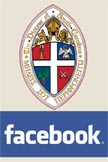|
|
Motion for Rehearing Denied; Ruling Not Based on Merits of Case |
 |
 |
 |
Today, April 29, 2015, the Federal 4th Circuit Court of Appeals in Richmond denied our motion for a rehearing of their decision to return to the District court the case of vonRosenberg vs. Lawrence, which asserted that this was a case of Federal trademark violations.
The case will now go back to the Charleston court for further action. Several things remain true about this action. While the Fourth Circuit said that Judge Houck used the incorrect procedural standard to grant our Motion for Dismissal, it expressed no opinion on the merits of Bishop vonRosenberg’s claims. It was certainly not a ruling in their favor on the merits. It simply means that the court believes the standard used to make his decision to dismiss was the wrong one and should be reconsidered using the appropriate standard. The question is one of procedure and not the merit of the complaint itself. The judge could in fact reach the same conclusion, using the new standard. To that point, the standard called for by the court, exceptional circumstances, is arguably well met by the facts that we now have both a strong trial court ruling in our favor, as well as a date certain for the case to be heard by the South Carolina Supreme Court. All the issues at stake in the Federal complaint will be essentially resolved by that decision.
We have good reason to hope that the local federal court will continue to respect the authority and decision of the state judiciary in South Carolina, just as the federal court did when a diocese left The Episcopal Church in Texas. As a general principal, Federal Courts do not interfere with state courts already engaged in the resolution of parallel issues, especially when the state court is well on the way to resolving the issue. Litigants who attempt to avoid a state court as TEC has done are generally recognized to be venue shopping, hoping to get a better deal in a different court, and most courts disapprove strongly of such behavior.
The unfortunate reality, in the short term, is that this keeps open another litigation front that drives up the expense of settling this matter for everyone. That is perhaps the only thing anyone really needs to understand about this decision. This has consistently been the TEC strategy. Nothing has changed, so please continue to keep our legal counsel and these cases in your prayers.
|
|
Newsflash


Sign up for our e-newsletter.
View past issues of e-newsletter. |
|
|
Latest News
latest newsGAFCON Primates Communique
17/04/2015
The GAFCON Primates Council of the Anglican Communion recently met in London for prayer, fellowship and to help chart the future of global Anglicanism [ ... ]
|
latest newsWhat it Means: Understanding Judge Goodstein's Ruling
06/02/2015
By the Rev. Canon Jim Lewis
This week, we received the ruling from Judge Diane Goodstein in our litigation with The Episcopal Church. A brief remind [ ... ]
| | Other Articles |
|